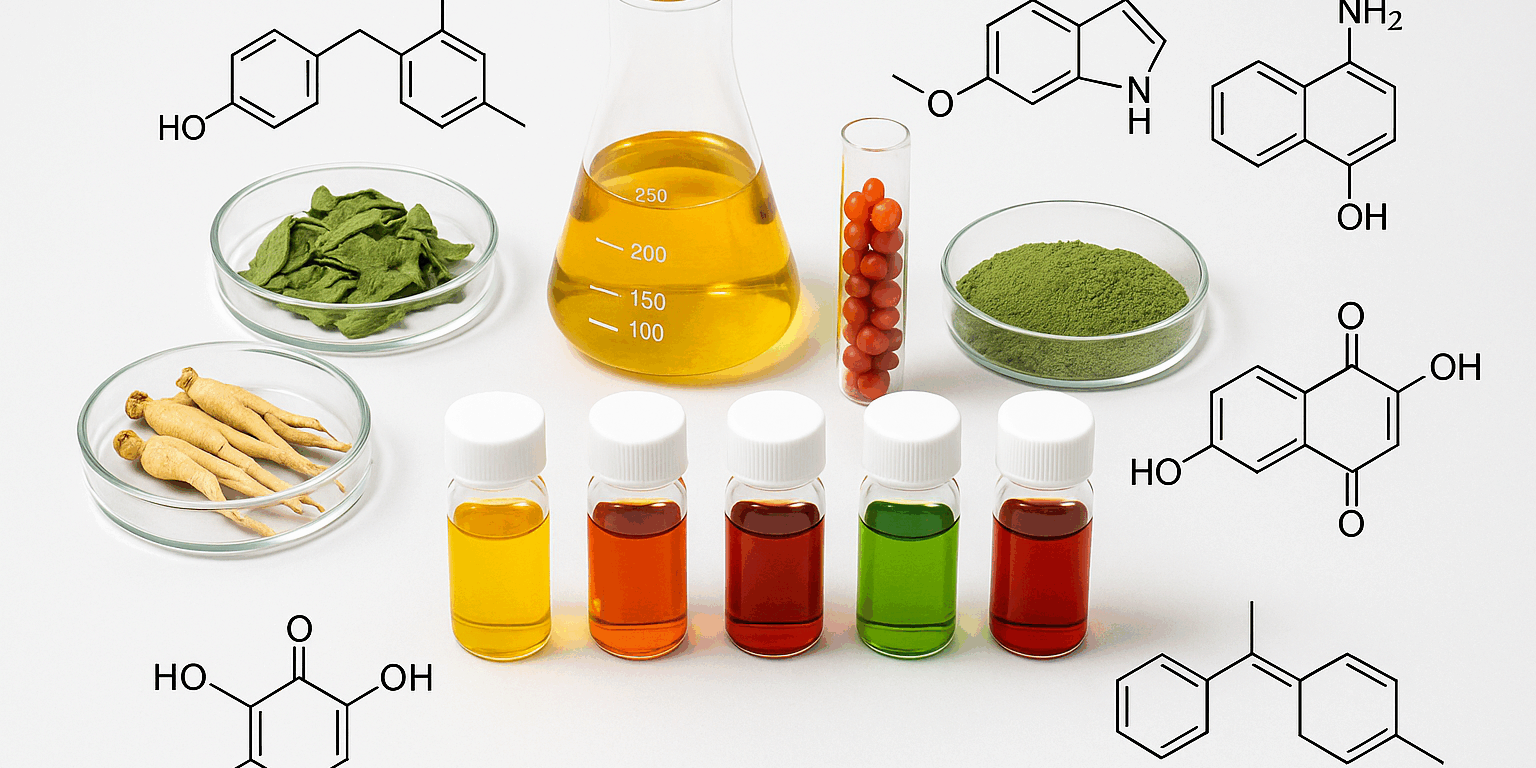In the rapidly evolving world of pharmaceuticals, nutraceuticals, and natural product research, the ability to accurately identify, measure, and reproduce findings is critical. At the center of this precision lies phytochemical standards the reference compounds that help scientists ensure consistency, accuracy, and reliability in testing plant-based materials.
Whether developing new drugs, testing herbal supplements, or advancing research in metabolomics, phytochemical standards play a vital role in quality control and discovery. In this article, we’ll explore why they matter, how they’re used, and the future of natural compound analysis.
What Are Phytochemical Standards?
Phytochemicals are bioactive compounds naturally found in plants—such as flavonoids, alkaloids, terpenes, and phenolic acids—that often hold therapeutic properties. However, the sheer diversity and complexity of these compounds make them challenging to analyze.
This is where phytochemical standards come in. They are purified, well-characterized reference compounds used to:
-
Validate analytical methods
-
Calibrate instruments
-
Compare test samples against a known benchmark
-
Ensure data reproducibility across laboratories
By providing a chemical “gold standard,” researchers can trust that their results reflect actual compound behavior rather than experimental inconsistencies.
Importance in Quality Control
1. Ensuring Consistency in Herbal Products
The global demand for herbal medicines and supplements continues to rise, but inconsistency in potency and safety has been a longstanding concern. Phytochemical standards allow manufacturers to measure the concentration of key bioactive compounds, ensuring that each batch of product meets regulatory and therapeutic expectations.
For example, a supplement claiming to contain a certain percentage of curcumin (from turmeric) can only be validated against a curcumin phytochemical standard. Without it, quality assurance would be unreliable.
2. Meeting Regulatory Requirements
Regulatory agencies, such as the U.S. Food and Drug Administration (FDA) and the European Medicines Agency (EMA), emphasize the need for standardized testing. Using phytochemical standards ensures that results align with global compliance requirements, reducing the risk of recalls or failed approvals.
For instance, the World Health Organization’s guidelines on quality control methods for medicinal plants emphasize the importance of standardized testing procedures—further highlighting the necessity of using phytochemical standards in herbal and pharmaceutical industries.
3. Reducing Risks and Contamination
Herbal supplements sometimes face issues like adulteration—when cheaper compounds or fillers are added. With phytochemical standards, laboratories can quickly detect discrepancies, preventing potentially harmful products from reaching consumers.
Role in Drug Discovery
1. Unlocking Nature’s Pharmacy
Plants have been the foundation of medicine for centuries, and even today, many modern drugs are derived from natural compounds. Phytochemical standards allow researchers to identify and study these compounds with precision, opening pathways for developing new therapies.
For example, compounds like paclitaxel (from the Pacific yew tree) and artemisinin (from sweet wormwood) have transformed cancer and malaria treatment. Their discovery was possible through standardized analytical methods that ensured consistent results.
2. Streamlining Research and Development
Drug discovery requires years of rigorous testing, from early-stage screening to clinical trials. By using phytochemical standards in preclinical research, scientists can confidently characterize compounds and their activity, reducing time lost to inconsistent data.
3. Supporting Advanced Technologies
Modern tools like high-performance liquid chromatography (HPLC), liquid chromatography–mass spectrometry (LC-MS), and nuclear magnetic resonance (NMR) spectroscopy all rely on standards to validate results. Without phytochemical standards, these cutting-edge technologies would be far less reliable.
Phytochemical Standards in Metabolomics
Metabolomics—the large-scale study of small molecules in biological systems—has become a cornerstone of precision medicine. In this field, phytochemical standards help in:
-
Identification: Confirming the presence of specific metabolites within complex samples.
-
Quantification: Accurately measuring metabolite concentrations.
-
Normalization: Ensuring that results are reproducible across experiments and laboratories.
At IROA Technologies, our commitment to providing tools for reliable metabolomic data ensures that researchers can harness phytochemical standards for deeper insights into human health, agriculture, and biotechnology.
Challenges in Sourcing and Using Phytochemical Standards
While indispensable, phytochemical standards are not without challenges:
-
Complex Isolation: Extracting pure compounds from plants is time-intensive and expensive.
-
Stability Issues: Some phytochemicals degrade quickly, requiring careful storage.
-
Limited Availability: Rare compounds are difficult to obtain in sufficient quantities.
-
High Costs: Purchasing standards for a broad range of phytochemicals can be costly for small laboratories.
These challenges highlight the need for continued innovation in the production and distribution of high-quality standards.
Future of Phytochemical Standards
As technology advances, we can expect:
-
Synthetic Alternatives: Chemists may increasingly synthesize phytochemicals in the lab, ensuring a more stable and scalable supply.
-
Digital Reference Libraries: Coupling standards with spectral databases will accelerate identification in metabolomics and drug discovery.
-
Integration with AI: Artificial intelligence can analyze complex datasets faster, but its accuracy will still depend on verified reference standards.
The future points toward a more streamlined, accessible, and reliable framework for using phytochemical standards in research and product development.
Why IROA Technologies Focuses on Standards
At IROA Technologies, we understand that reproducibility is the backbone of scientific advancement. That’s why we emphasize high-quality reference materials, normalization kits, and metabolomic tools that enable researchers to unlock meaningful discoveries.
By integrating phytochemical standards into quality control and drug discovery pipelines, laboratories can reduce variability, enhance compliance, and accelerate breakthroughs that directly impact human health.
Final Thoughts
Phytochemical standards are more than just reference compounds—they are the foundation of reliability in modern science. From ensuring supplement safety to driving life-saving drug discoveries, these standards protect consumers and empower researchers worldwide.
At IROA Technologies, we believe that adopting phytochemical standards is not optional—it’s essential. By providing researchers and industries with the tools they need for precision and reproducibility, we help accelerate innovation and improve health outcomes on a global scale.







